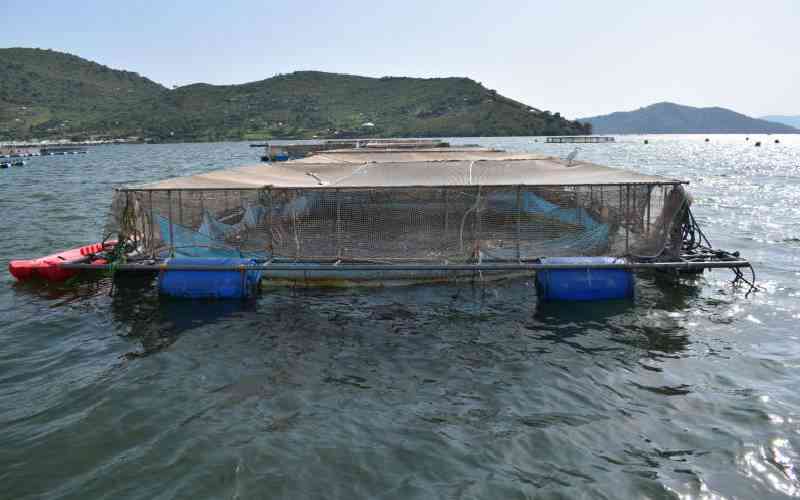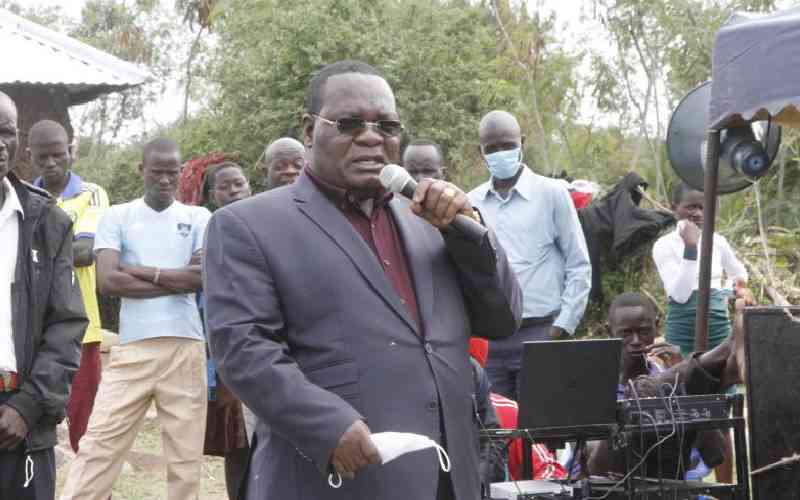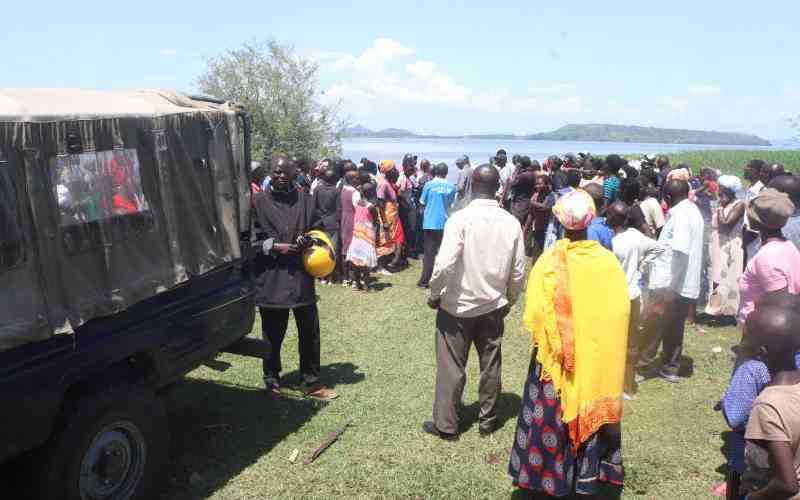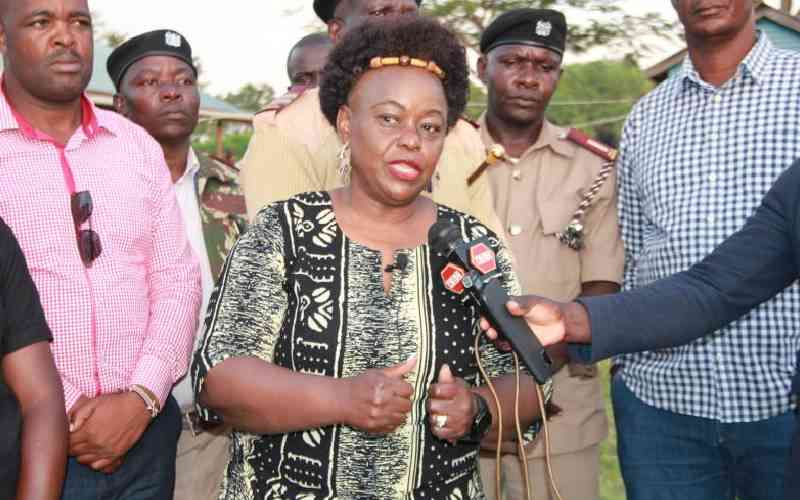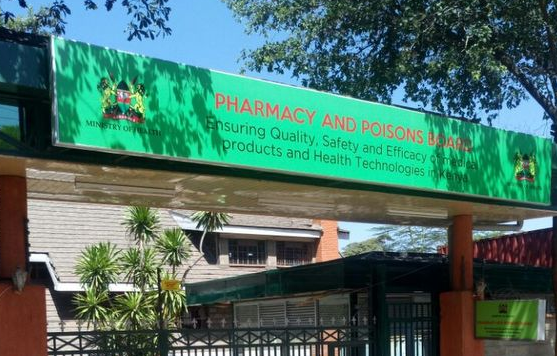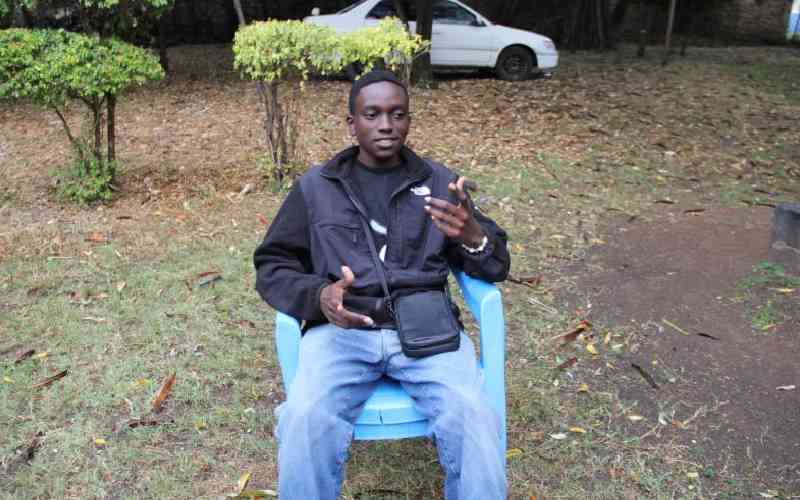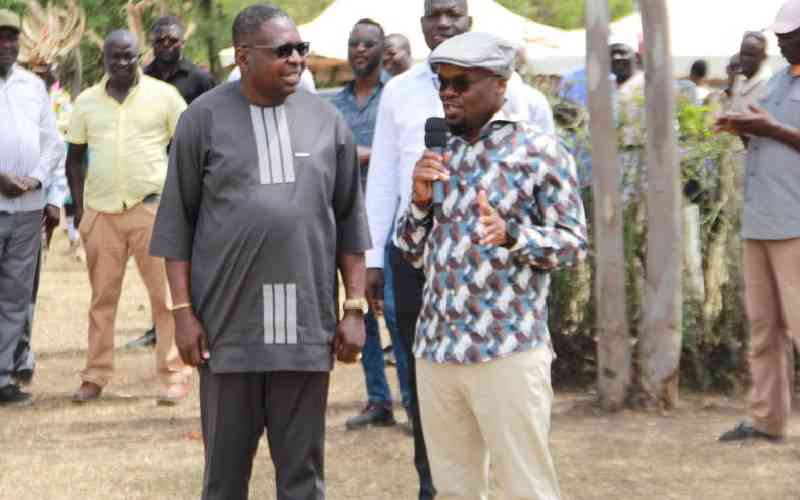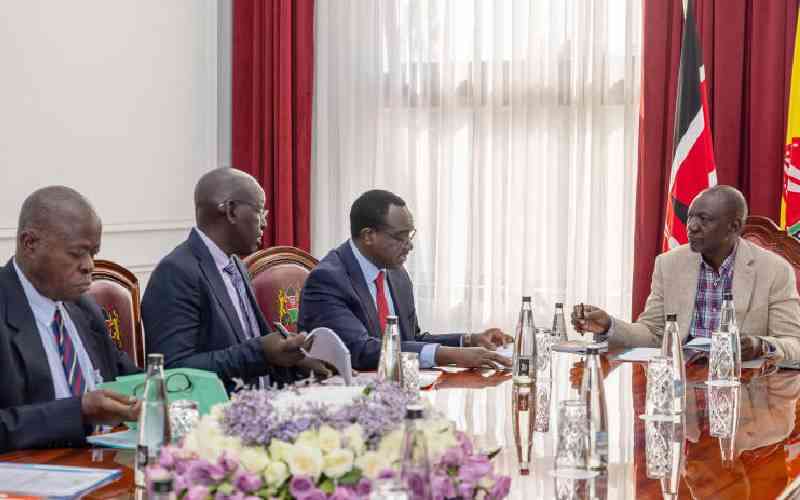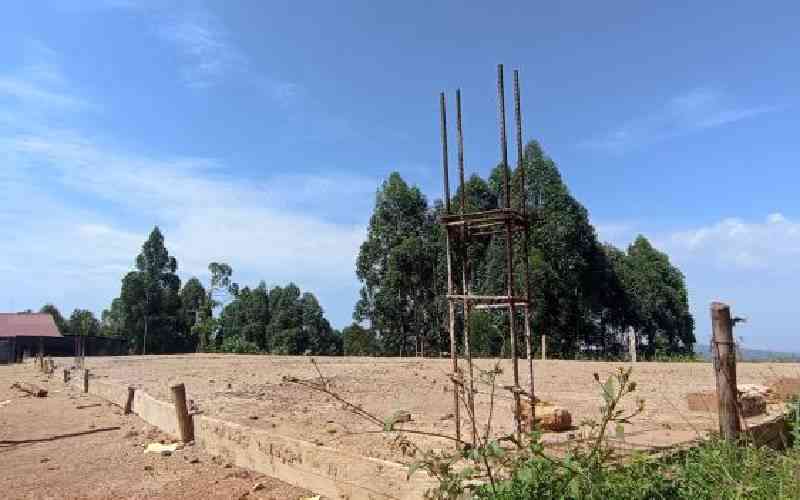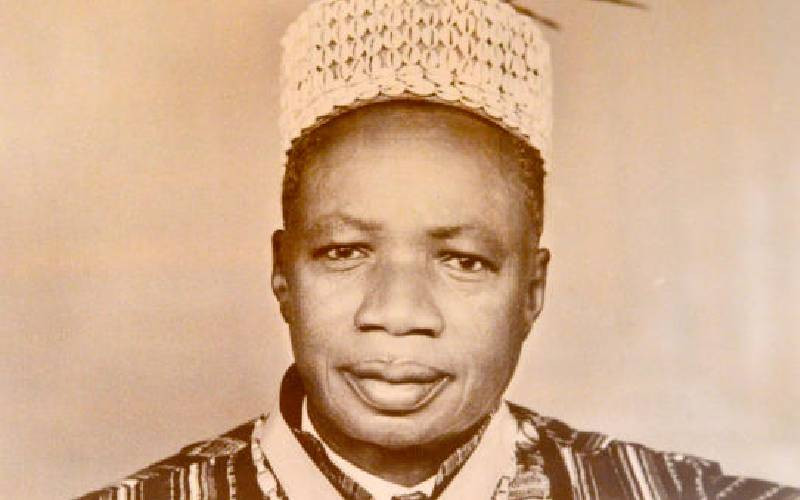
He was one of the brightest minds during the British colonial rule and after the independence in 1963.
The man was towering figure whose star still shines bright several decades after he was laid to rest on May 17, 1981.
To many who understands his heroism, he is an underrated liberation hero who was at the heart of the fight against disease, poverty and illiteracy in colonial and post-colonial Kenya.
Legend of Paul Mboya, the iconic paramount chief from Karachuonyo in Homa Bay County, was epic, inspiring and transformative. A man who defied all odds to play a crucial role in the country's political liberation. An awe-inspiring story to behold.
In the political arena, he was the catalyst that played an integral role in convincing the colonial British administration to allow the country's First President Jomo Kenyatta to come back to Kenya. In religious circles, he played a crucial role in bringing more people to the Christian faith.
In the academic front, he was the brainchild of a series of institution's birthed immediately after independence. He had also taught Africans during the colonial period and authored the first Luo book.
A book celebrating his life and times gives a glimpse on the key role the former colonial chief played in the country's liberation.
The book authored by Geoffrey Sang and Vincent Orinda dubbed "Paul Mboya: A portrait of a great leader" illustrates how Mboya was dedicated to a life of service to a country he cherished dearly.
For a man who the British colonialists gave a listening ear and trusted with their dealings in Kenya, he was the opener that removed the bottleneck that had barred Kenyatta from coming to his homeland.
Rough rides
This came at a time colonial secretary George Hall had banned Kenyatta from returning to Kenya. All this rough tides calmed with a rare visit Mboya and a group of delegates made to London.
On May 24, 1946, a ship dubbed "The Llandaff Castle" docked at Liverpool. Among those that were on board was Mboya. They would then take a train to London Paddington Station.
The aim of the visit was to attend the World War Victory parade that had been organised by the British. The paramount chief was among the lucky Kenyans to be selected to attend the event.
And he had deserved his seat on the train. During World War 1, he was among the soldiers in the trenches while he was also a force that helped push the colonial agenda in the country while serving as paramount chief for the colonial administration.
The journey would prove to be a crucial moment for Kenya. It was in London that Mboya and the delegation would get the opportunity to meet Jomo Kenyatta.
And although his fellow countrymen had visited, Kenyatta was a troubled man. He had been banned from coming back home.
It was the first time Mboya would meet the man who would play an important role in the country and become president after the exit of the colonial government.
Mboya used the trip to lobby for Kenyatta's return. While in London, he engaged with the colonial secretary and pleaded with him to lift the ban that had been imposed on Kenyatta.
"We fought very hard for his return. We told the then British Secretary of State of Colonies George Hall that Mr Kenyatta was a harmless person," said Mboya.
According to Mboya, Kenyatta was only a politician who was championing for the rights of his people.
About a month after the delegates came back to Kenya, Mboya's requests to the British to allow Kenyatta to travel back to Kenya bore fruits. The country's first president returned to the country in September 1946.
In the account of Mboya's life, the meeting in London was the turning point in their friendship with Kenyatta. The country's first president was grateful for Mboya's role in lobbying for his return.
Although he was still a civil servant working for the colonial administration, Mboya maintained a close relationship with Kenyatta. Their friendship lasted beyond the country's independence.
As other liberation heroes piled pressure on the colonial government to push for the country's independence, Mboya also played a crucial role in helping prepare the country for a transition.
He was tasked by the colonial government to help observe the transition of power from the colonial administration to the majority rule.
Part of the activities the colonial administration did in preparations of the independence included the preparations of the 1961 elections to create seats for the Legislative Council in Nairobi. The elections led to an increase in the number of Africans with a majority in the House leadership.
In 1955, he worked closely with colonial Chief Secretary Walter Coutts to study the methods that the colonial administration could adopt for preparing Africans to vote. He organised town hall meetings where Africans spoke freely on their thoughts. Even as he occupied himself with preparations for the transition, in his Homa Bay backyard, Mboya reorganised South Nyanza and commissioned the construction of Homa Bay African District Council.
For a man who grew up from humble beginnings to change his fortunes and that of his people, greatness appears to hang around him all through his life.
He stroke a near-perfect balance between working with the government of the day and pushing for the interests of the people. A revered collaborator who was also keen to work with Kenyatta's government after independence.
Mboya tried to unite the Luo community while working closely with the British colonialists. He also worked as a teacher and enlightened several people in Nyanza region.
Known as a man of many firsts, on March 1, 1948, Mboya became the first African from Kenya to be appointed to the East Africa Central Legislative Assembly (EACLA).
The others who constituted members of the assembly were Asians and Europeans. The regional body was formed by the East Africa High Commission.
The powerful body where Mboya sat was authorized by King George VI through an order in council to enact laws of good governance in territories.
After the death of King George VI, Mboya was among the few Kenyans who were allowed to attend the coronation of Queen Elizabeth II. He was accompanied by his wife Maritha Mwango, another history maker who is brainchild of Maendeleo Ya Wanawake.
The two had been selected by the then governor of Kenya Sir Everline Baring. During the stint he served the colonial administration, Mboya started several schools in South Nyanza. He also focused on the improvement of the health sector. He marshalled resources for the expansion of Kisii Hospital. The developments saw the bed capacity increase by 44 beds.
Although the development was still inadequate, the colonial collaborator mobilized for an installation of an X-Ray at the Kendu Adventist Hospital.
By 1956, the African District Councils had established 22 health facilities across South Nyanza. The man passion with revamping the region's healthcare had been influenced by the death of his son who passed on under mysterious circumstances.
Among the plans that Mboya put in place to revamp the health sector in the region included plans to construct 15 new health centers. At the time, the region was struggling with malaria, tuberculosis, trypanosomiasis and leprosy.
After the country's independence, he was one of the instrumental figures that helped shape the economy of the Luo Nyanza. In times of peril, he was the peacemaker.
This came to the fore after the coup attempt of 1971 to dislodge president Kenyatta from power. The foiled attempt to overthrow the government was done by nine Kenyans.
The nine were Joseph Muga, Apollo Wakiaga, Juvenalis Aoko, Joseph Owino, Sylvanus Oduor , Eliud Langat, Daniel Langat and Eric Chepkwony.
Coup attempt
The turn of events deeply concerned Mboya. In August 1971, he was one of the leaders who issued a statement to condemn the coup attempt.
He stated that the Luo region was firmly behind the government. "The Luo loyally support president Mzee Jomo Kenyatta, his government and the ruling party Kanu" said Mboya.
Mboya sought to convince Kenyatta that the coup attempt did not originate from Luoland. In the aftermath of the attempt, the celebrated former chief embarked on a mission to encourage the Luo community to work together for the better meant of the Kenya. Although his contribution to the country's growth was evident during the colonial period, his dedication to promote better governance in the region was a master stroke.
For a man who was born a natural leader, members of the Luo Union backed him up to take the slot of Ker "chairman" of the council in 1967.
At the time he took over, the union was a powerful union but was struggling with an infiltration by politics. The original goal that the founders including Jaramogi had for the union had slowly eroded away.
At the helm of leadership, Mboya started realigning the work of the union to its original mandate. He oversaw massive growth for the union and helped push for the construction of Ramogi college.
Several members of the union had aligned themselves to either Kanu or the KPU that had been formed by Jaramogi. The developments affected operations of the union that had christened itself as a non-political outfit.
Among the sweeping changes that he made at the union included removal of leaders that had been allied to Tom Mboya. At the time, Tom Mboya was in Kanu but had allies within the union.
At the height of the rift in Kanu that resulted into huge political differences between Jaramogi and Kenyatta in 1969, Mboya tried to be the peacemaker and tried to salvage the affairs of Nyanza.
The developments came at a time when the region had lost Argwings Kodhek. A few weeks after the death of Kodhek, Mboya convened a meeting of delegates of the Luo Union to discuss several key issues.
He was keen to ensure the union does not involve itself in politics and instead focus on the economic agenda. Among the decisions the delegates reached was the removal of key allies of Tom Mboya from the union.
The sweeping changes saw the delegates led by Mboya endorse former Kisumu Mayor Grace Onyango to hold the powerful position of the Secretary General of the Luo Union. Grace became the first woman to hold the powerful position.
During his stint in leadership, Mboya was keen to promote women empowerment. He was the first leader in the union to promote women in leadership. He reached out to more women and promoted their affairs in the activities of the union.
For him, he had already learnt first-hand on the need to push for women empowerment. After all, his own partner Maritha Mwango who was the brainchild of the Maendeleo ya Wanawake was also actively involved in women empowerment.
At the time, the union had also set up a Luo Union Women's Wing that was involved in a number of activities. On the other hand, there was also an active student's union that was aimed at promoting the affairs of learners and expanding the number of skilled personnel who could compete for jobs.
And every year, the legendary Mboya made it a habit to invite the students for a meeting at Gendia in Kendu Bay. The student's union grew exponentially as Mboya and his ilk focused more on development and leadership.
The annual reunion fete would include sports, academic symposiums debates and a closing grand dance.
According to authors Sang and Orinda, the reunions gave birth to several heroes in academia and in sports. It is through such reunions that footballers who played for Luo Union FC became a class of their own.
The Luo Union FC would later become Gor Mahia football club. During his reign as Ker, Gor Mahia became a thriving football club and was a mainstay in the country's football scene.
In the academia front, the reunions that Mboya championed for through the Luo Union led to the establishment of the Ramogi Institute for Advanced Technology (RIAT). The idea also birthed the Luhya (Masinde Muliro Institute in Kakamega as well as the Kalenjin (Rift Valley Institute in Njoro). The idea birthed the current national TVET concept that is currently being implemented across the country.
All this came in November 1971 when Mboya called for a meeting to discuss the establishment of an institute of an advanced learning. A month earlier, Mboya had sent the proposals to the Luo Student's league at the University of Nairobi, Daresalam and Makerere in Uganda.
Mboya would later convene a fundraiser for the construction of RIAT. And in an effort to lure back Kenyatta to support the community, he appointed the Head of State as the patron of the new learning institute.
Kenyatta accepted the honor and on January 2, 1972, a fundraiser was conducted at the Kisumu Municipal stadium for the construction of the institute. Although Kenyatta did not attend the fundraiser, he sent a personal donation of Sh5,000.
The then Attorney General Charles Njonjo sent a personal donation of Sh500 while Jaramogi sent a donation of Sh1000.
The success of the fundraiser influenced Mboya to organize another fundraiser in the same month for the construction of a proposed Tom Mboya Memorial Hall in Mombasa. The fundraiser was held at Tononoka Social Hall.
Back at home, he was also an instrumental figure in the establishment of urban centers, an initiative he had started when he still served as a colonial chief and pushed for the establishment of Homa Bay Town.
He married Maritha Mwango who would play an important role in the formation of Maendeleo Ya Wanawake.
 The Standard Group Plc is a multi-media organization with investments in media platforms spanning newspaper print
operations, television, radio broadcasting, digital and online services. The Standard Group is recognized as a
leading multi-media house in Kenya with a key influence in matters of national and international interest.
The Standard Group Plc is a multi-media organization with investments in media platforms spanning newspaper print
operations, television, radio broadcasting, digital and online services. The Standard Group is recognized as a
leading multi-media house in Kenya with a key influence in matters of national and international interest.

